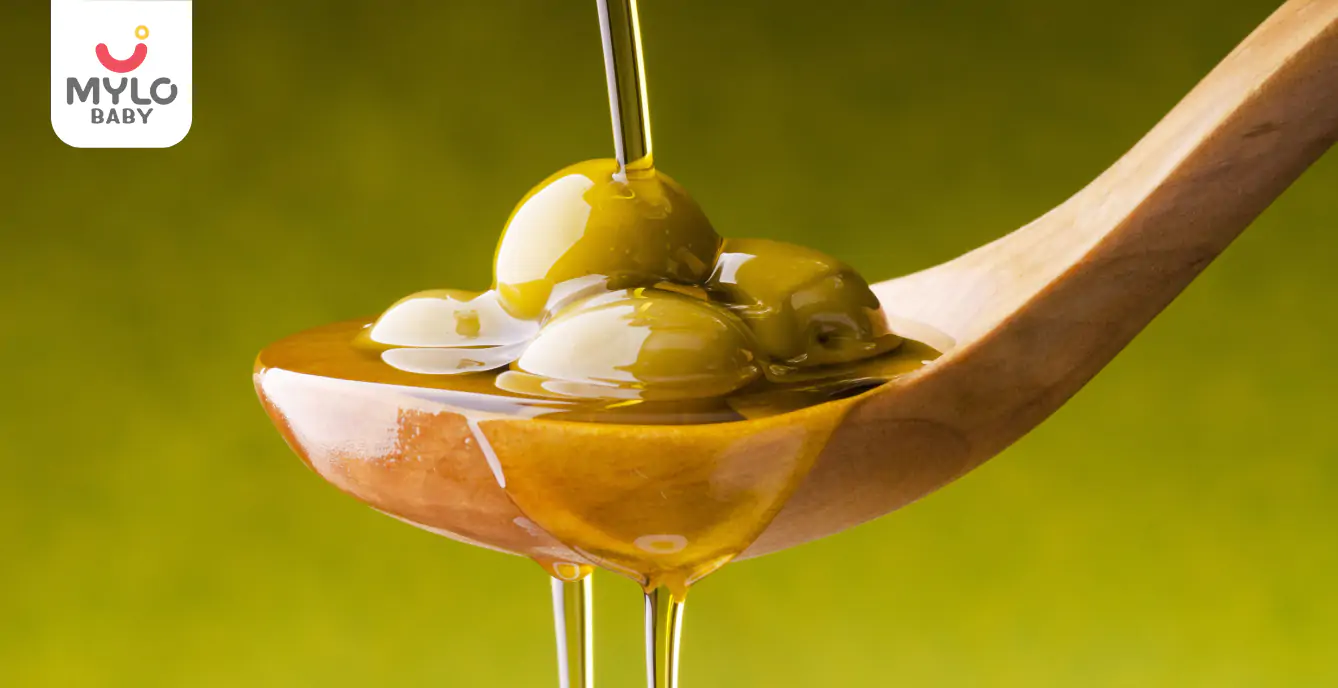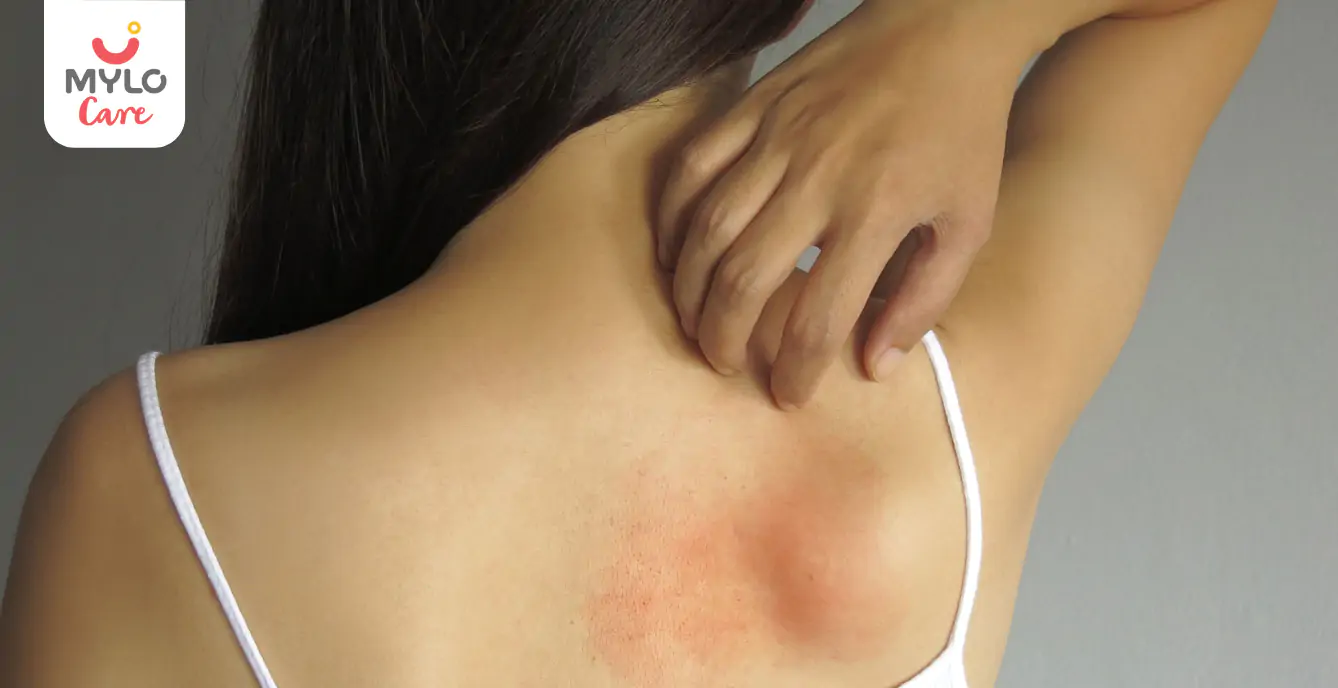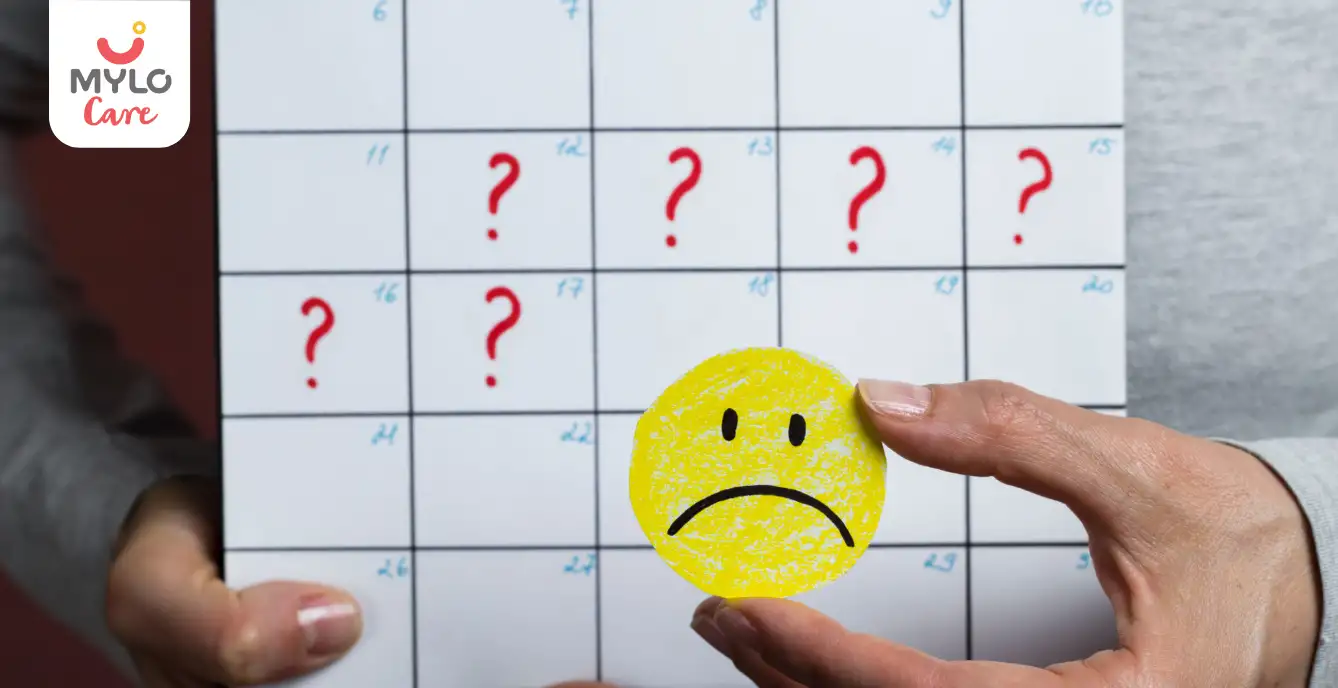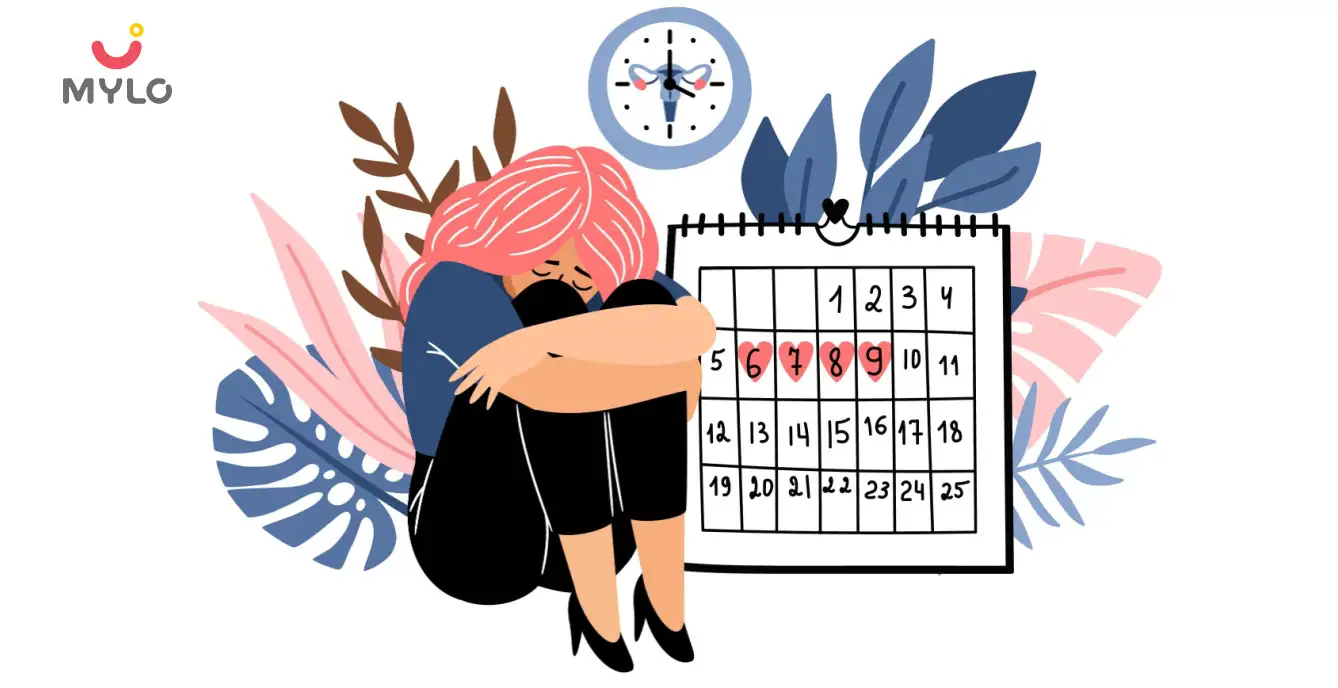In this Article
Ovulation
The Best Times for Sexual Intercourse After Ovulation
Updated on 29 December 2023
Are you on a quest to maximize your chances of conceiving or looking to avoid pregnancy at all costs? Whatever the case, understanding the best times for sexual intercourse after ovulation is key. Ovulation, the release of an egg from the ovary, marks the most fertile period of a woman's menstrual cycle. And believe it or not, timing is everything when it comes to planning and avoiding conception.
In this article, we will understand the ins and outs of ovulation, when is having sex after ovulation considered safe and beneficial, its benefits and when to avoid it.
What happens after ovulation?
After ovulation, the egg survives for about 12-24 hours. If it is not fertilized during this time, it disintegrates and is absorbed by the body. However, the sperm can survive inside the female reproductive tract for up to five days. This means that if you have sexual intercourse before ovulation, the sperm can still fertilize the egg after it is released.
The fertility window and timing for conception
The fertility window refers to the days in which you are most likely to conceive. It usually occurs in the days leading up to and including ovulation. For women with a typical 28-day menstrual cycle, ovulation usually occurs around day 14.
However, every woman is different, and factors such as stress, illness, or hormonal imbalances can affect the timing of ovulation. Therefore, it is essential to track your menstrual cycle and look out for signs of impending ovulation, such as changes in cervical mucus or a slight increase in basal body temperature.
Is it safe to have sex after ovulation?
It’s normal for couples to wonder can we do sex after ovulation. While the chances of getting pregnant decrease significantly after ovulation, it is still possible to conceive during this time. Sperm can survive inside the female reproductive tract for up to five days, so if you have sex shortly after ovulation, the sperm may still be present when the egg is released.
Additionally, some women may experience an irregular ovulation cycle, making it difficult to predict the exact timing of ovulation. Therefore, if you are trying to avoid pregnancy, it is advisable to use contraception even after ovulation has occurred.
You may also like: Symptoms After Ovulation If Pregnant 1-14 DPO (Days Past Ovulation)
Can I get pregnant after ovulation?
The likelihood of getting pregnant after ovulation is relatively low but not impossible. As mentioned earlier, sperm can survive for several days inside the female reproductive tract, increasing the chances of fertilization if you have sex shortly before or after ovulation.
Additionally, some women may experience a second ovulation during a menstrual cycle, further increasing the possibility of conception after the initial ovulation. Therefore, if you are trying to conceive, it is recommended to have sexual intercourse in the days leading up to and after ovulation.
What is the best time for sexual intercourse after ovulation?
For couples trying to conceive, the best time for sex is within the 24-48 hours following ovulation. This is when the egg is most likely to be fertilized by any surviving sperm. However, it is important to note that sperm can survive for up to five days, so having sex in the days leading up to ovulation also increases the chances of conception.
On the other hand, for couples trying to avoid pregnancy, it is advisable to wait until after ovulation has occurred and the fertile window has passed before engaging in sexual intercourse. This typically means abstaining from sex for at least three to four days after ovulation.
It is important to remember that even though the chances of conception decrease significantly after ovulation, it is still possible to get pregnant during this time. Therefore, it is crucial to use contraception if you are not ready for a pregnancy.
You may also like: Signs Ovulation is Over: Your Guide to Understanding the End of Ovulation
What are the benefits of sex after ovulation for TTC couples?
For couples trying to conceive, having sex post ovulation can offer several benefits:
1. Increased chances of conception
While the likelihood of getting pregnant decreases after ovulation, it is still possible to conceive during this time. Sperm can survive for up to five days inside the female reproductive tract, increasing the chances of fertilization if you have sex shortly after ovulation.
2. Reduced stress
Trying to conceive can be stressful, and engaging in post-ovulation sex can help relieve some of that stress. Knowing that you have done everything possible to maximize your chances of conception can provide a sense of peace and relaxation.
3. Improved intimacy
The act of coming together as a couple to achieve a common goal can strengthen the emotional bond between partners. It can help maintain and enhance the intimacy in your relationship.
You may also like: Ovulation Kit 101: A Beginner's Guide to Tracking Fertility & Maximizing Your Chances of Conception
When should you avoid having sex after ovulation?
If you are trying to avoid pregnancy, it is advisable to abstain from sexual intercourse for at least three to four days after ovulation. This is because sperm can survive inside the female reproductive tract for up to five days, increasing the chances of fertilization if you have sex shortly after ovulation. Waiting until after the fertile window has passed provides a safe buffer period and reduces the risk of unintended pregnancy.
The Bottomline
Understanding your menstrual cycle and the best times for sexual intercourse after ovulation is crucial whether you are trying to conceive or trying to avoid pregnancy. For couples trying to conceive, having sex within the 24-48 hours following ovulation increases the chances of fertilization. On the other hand, if you are trying to avoid pregnancy, it is advisable to wait until after ovulation and the fertile window has passed before having sex. Remember to always use contraception if you are not ready for a pregnancy.
References
1. Sung S, Abramovitz A. Natural Family Planning. (2023). In: StatPearls [Internet]. Treasure Island (FL): StatPearls Publishing
2. Wilcox AJ, Baird DD, Dunson DB, McConnaughey DR, Kesner JS, Weinberg CR. (2004). On the frequency of intercourse around ovulation: evidence for biological influences. Hum Reprod.
3. Wilcox AJ, Weinberg CR, Baird DD. (1995). Timing of sexual intercourse in relation to ovulation. Effects on the probability of conception, survival of the pregnancy, and sex of the baby. N Engl J Med.



Written by
Anupama Chadha
Anupama Chadha, born and raised in Delhi is a content writer who has written extensively for industries such as HR, Healthcare, Finance, Retail and Tech.
Read MoreGet baby's diet chart, and growth tips

Related Articles
RECENTLY PUBLISHED ARTICLES
our most recent articles

Sex Life
গর্ভবতী হওয়ার জন্য প্রধান 10টি যৌন অবস্থান: গর্ভধারণের চেষ্টাকারী দম্পতিদের জন্য আলোচনা | Top 10 Sex Positions to Get Pregnant: The Ultimate Guide for Couples Trying to Conceive in Bengali

Tight Vagina and Women's Health: An In-Depth Guide

Baby Massage
The Ultimate Guide to Using Olive Oil for Baby Massage

Heat Rash During Pregnancy: Causes, Symptoms and Prevention

Periods
The Ultimate Guide to Understanding the Reasons for Late Period

Menstrual Cycle
What Can Be the Maximum Delay in Periods If Not Pregnant?
- Black Period Blood: Is It Normal or a Cause for Concern?
- Lean PCOS: A Comprehensive Guide on Causes, Symptoms and Treatment
- PCOS Mood Swings: The Ultimate Guide to Causes and Strategies for Relief
- PCOS and Thyroid: Understanding the Complex Relationship and Finding Solutions
- Intermittent Fasting & PCOS: The Ultimate Guide to Benefits, Risks and Precautions
- Insulin Resistance & PCOS: A Comprehensive Guide to Causes and Management
- Your heart stops beating when your baby feels breathless! Here are 5 things to know about infant breathlessness.
- Newborn Crying: What It Means and How to Handle It?
- When Do Babies Make Eye Contact: Keeping an Eye on Important Milestones
- Is your baby getting breathless frequently? Five things you must know
- 50 Budget-Friendly Birthday Return Gift Ideas to Wow Your Guests
- PCOS Exercise: Your Guide to Sweating Away PCOS
- PCOS and Pregnancy: How to Manage PCOS on the Path to Parenthood
- PCOS Tests: The Power of Diagnostic Tests in Your Health Journey


AWARDS AND RECOGNITION
Mylo wins Forbes D2C Disruptor award
Mylo wins The Economic Times Promising Brands 2022
AS SEEN IN
















At Mylo, we help young parents raise happy and healthy families with our innovative new-age solutions:
- Mylo Care: Effective and science-backed personal care and wellness solutions for a joyful you.
- Mylo Baby: Science-backed, gentle and effective personal care & hygiene range for your little one.
- Mylo Community: Trusted and empathetic community of 10mn+ parents and experts.
Product Categories
baby test | test | baby lotions | baby soaps | baby shampoo |






